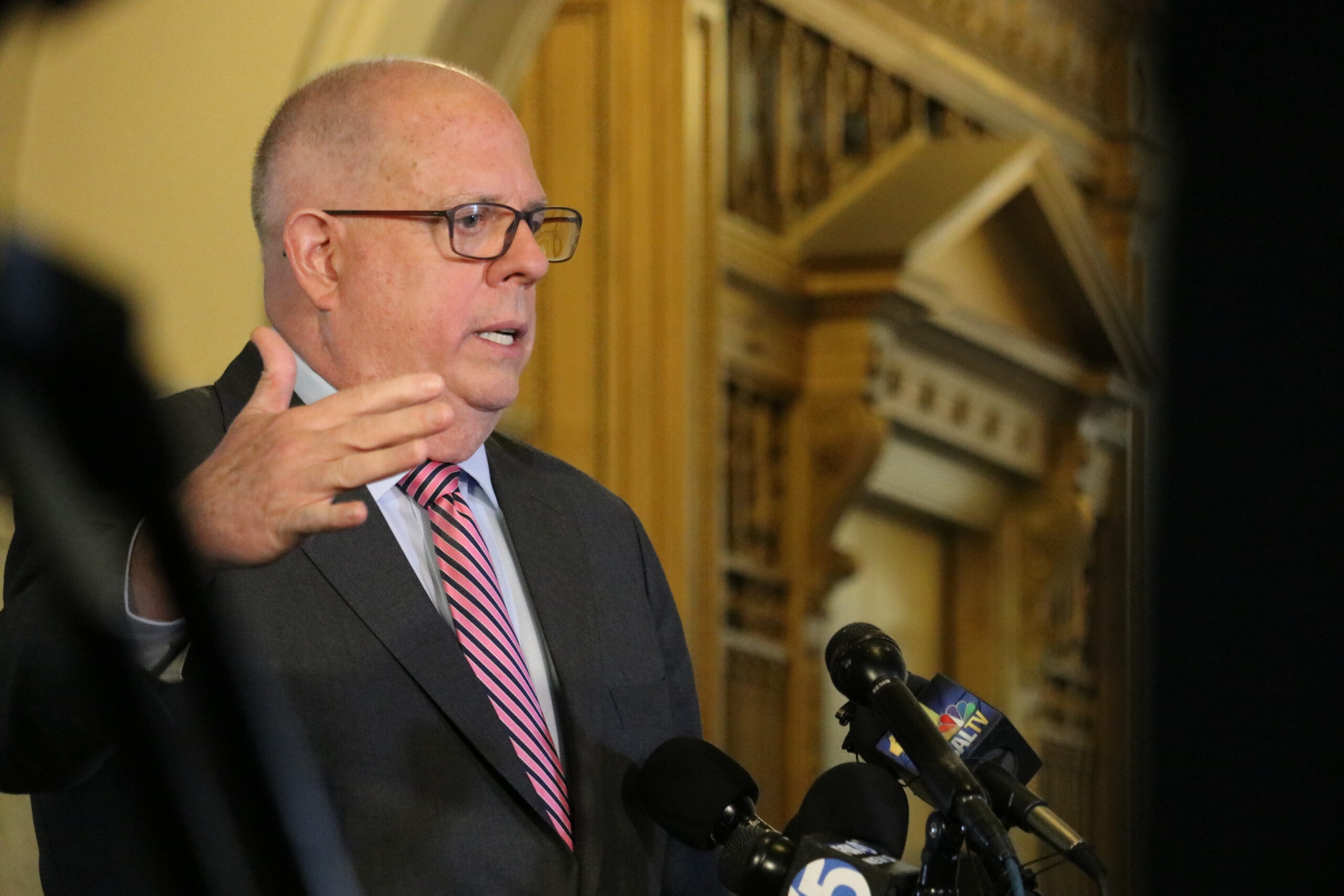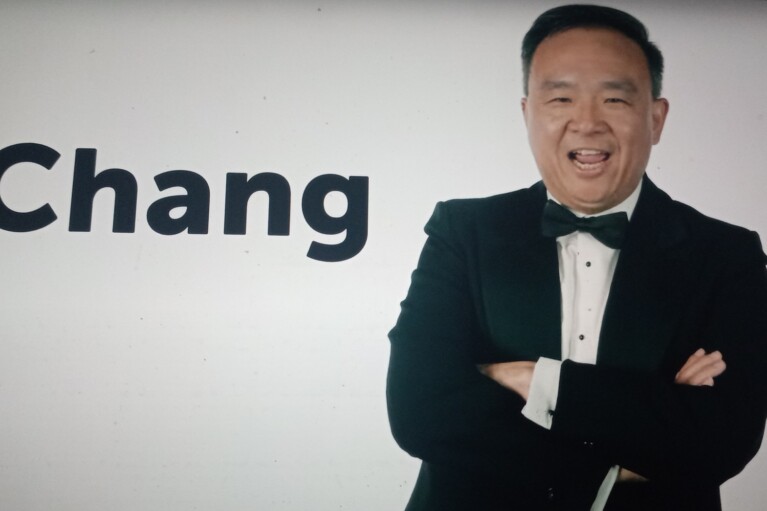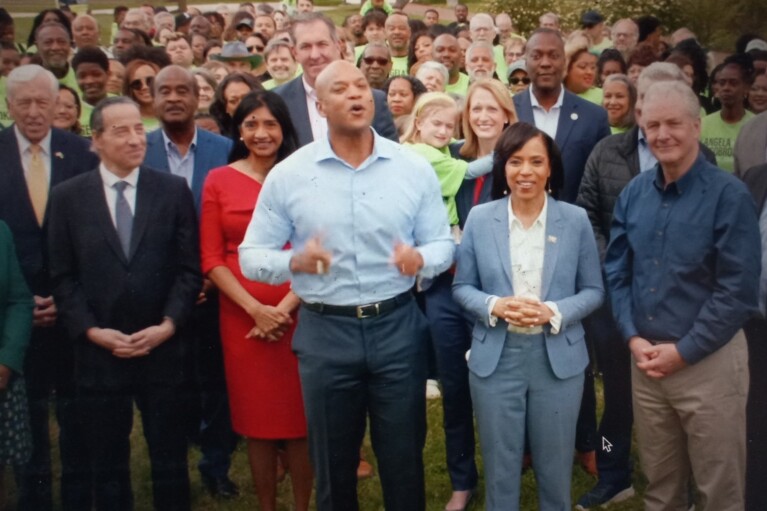
By Larry Ottinger
The writer is a nonprofit professional and board chair of Advance Maryland, which works with partners to secure a just and sustainable future for all Marylanders.
With his surprise announcement to run for the United States Senate, former Gov. Larry Hogan is seeking to move from a government executive to legislative role. During his eight years as governor, Hogan left an official record of where he stands on critical issues — his vetoes of state legislation perhaps serving as the clearest expression of his policy positions.
As relates to Maryland workers and their families, Hogan vetoed legislation to gradually increase the minimum wage to $15 over several years. Hogan also vetoed an earned sick leave bill requiring workers to be given five paid sick days per year, and the establishment of a paid family and medical leave insurance program. The Maryland General Assembly overrode these vetoes with the hard work of a broad coalition of civic, labor, small business and faith groups, state legislative leaders and the public.
On the issue of reproductive justice and access to abortion care, Hogan vetoed a law to increase the number of trained providers and availability of services, including in the two-thirds of Maryland counties without a single provider. Hogan issued his veto just as the Supreme Court was preparing to overturn Roe v. Wade and Maryland was facing the imminent need to provide care to patients from neighboring states like West Virginia. After the Maryland General Assembly overrode his veto, Hogan denied a request from the state comptroller to immediately release $3.5 million in appropriated funds for training new providers in quality and safe care.
On education, Hogan vetoed the landmark reform legislation called Blueprint for Maryland’s Future, which was developed by the Kirwan Commission after extensive input and careful study. The legislature overrode Hogan’s veto to enact this 10-year plan to “expand pre-kindergarten programs and increase funding for schools with high concentrations of poverty, increase pay and career opportunities for teachers, create new career pathways for high schoolers who don’t plan to attend college, and establish an accountability board….”
On preventing gun violence, Hogan vetoed background checks for the sale and transfer of shotguns and rifles, legislation eventually enacted over his veto in response to a 2018 mass shooting at the Capital Gazette newsroom in which five people were killed and two people wounded by a gunman using a shotgun.
On voting, Hogan vetoed a bill that would have given voters an opportunity to sign their mail-in ballots if they forgot to do so. In 2015, Hogan vetoed a bill — subsequently overridden — to allow approximately 44,000 ex-felons on probation or parole to restore their voting rights.
Turning to other issues, Hogan canceled the Red Line light rail project for Baltimore; vetoed legislation to prevent eviction of tenants with pending applications for rental assistance in response to Covid-related economic hardship; and vetoed funding for the Prescription Drug Affordability Board.
Many Marylanders likely are unaware of Hogan’s record on these policy issues for two main reasons. First, on a large number of these issues, Maryland state legislators overrode Hogan’s vetoes meaning that the policies became law and Hogan’s opposition no longer affected the public. Second, as a skilled politician, Hogan intentionally downplayed and avoided attention to positions that were unpopular.
Indeed, Hogan’s video announcement for Senate on Feb. 9 is almost completely devoid of any mention of policy other than taking credit for tax cuts and a budget surplus. Hogan is a traditional, “pro-business” Republican whose record should appeal to traditional Maryland Republicans.
However, the Republican Party in Maryland and nationally are controlled by its Trump and MAGA wing. To his credit, as governor, Hogan acknowledged Covid as a public health emergency and supported policies to limit its spread. He also stated, in what should be unremarkable, that President Biden won the election in 2020.
In an evenly divided U.S. Senate, the most important question will be whether Democrats or Republicans control the majority and the agenda and which party is more likely to govern in the public interest. Based on his record, Hogan would align with Senate Republican leadership. Perhaps for these reasons, back in 2022 when being courted to challenge Chris Van Hollen, Hogan said, “I don’t have a burning desire to serve in the U.S. Senate.”
Maryland voters should be informed about important policy issues not only from the campaigns but also from the nonprofits, state policymakers and their constituents who have worked so hard to develop and implement them.




 Creative Commons Attribution
Creative Commons Attribution